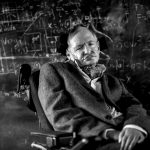Hello everyone! My name is David Nelson I am 29 years old and have lived in Regina, Saskatchewan my entire life. I enjoy being active and play a variety of sports throughout the year. My dog Jett and I love to head out on adventures but also can be found laying on the couch watching TV. I’ve been a classroom teacher in Regina for eight years and in the past 5 years, I have also been the I.T. Coordinator at my school. I am responsible for day to day operations of our student laptops, iPads, and any other educational technology in the school. I have taught grades 6,7,8 Science, Health and Physical Education during this time as well.
The school that I teach at has a very unique model that has allowed me to explore the way that I use technology in the classroom. Mother Teresa Middle School (MTMS), is populated by middle years’ students who come from the North Central neighbourhood in Regina. It was labelled by Maclean’s magazine as “Canada’s Worst Neighbourhood” in 2007. Today, MTMS “… aims to help break the cycle of poverty amongst its target families through the application of its unique model.” One of the steps toward breaking the cycle of poverty is to equip my students with the 21st century skills needed to succeed in their future endeavours.

The picture that I chose to share is from this past year when our school community participated in a Traditional Aboriginal Sweat. The oral tradition of First Nations people has become a passion of mine throughout the time I have been teaching at my current school. I have been lucky enough to learn through elders storytelling and participating in traditional ceremonies. Much of the oral history and language of First Nations people has been lost throughout the generations. However, within the last ten years, an emphasis has been placed on rebuilding the history of this rich culture.


Alicia Lok-Malek
May 16, 2018 — 4:24 pm
Hi David – what great work you are involved with! Hoping to hear more during the term on successful methods in breaking the cycle of poverty. In terms of the 21st century skills, how much of these skills rely on home access to expensive technology?
Looking forward to working together!
Alicia
david nelson
May 17, 2018 — 8:35 am
Hey Alicia,
The 21st-century skills that we talk about do involved computers and we have a 1:1 computer to student ratio. Our students are given a laptop when they come to our school and keep it throughout grade 6-12. None of the students are expected to have computers at home, but they do have access to many different library computers and personal smartphones. The 21st-century skills that we focus on give them the ability to perform tasks that are more focused on in Highschool, University and the workplace. Along with word processing, we also have been focusing on digital literacy and etiquette within online contexts.
sally bourque
May 16, 2018 — 8:34 pm
Hi David,
Nice to meet you! Your job sounds challenging and rewarding. I have always wanted to learn more about oral story-telling but it’s one of those topics that I’ve just never seemed to have the time for. (someday)
Looking forward to hearing more of your experiences and perspectives throughout the course.
joanne davies
May 17, 2018 — 1:59 pm
Hi David,
Thanks for your post. Being a relatively recent immigrant to Canada and new to indigenous culture here, i am fascinated too by the oral storytelling culture and how we, as educators, can work with this rich way of teaching, in such a text and technology based society that we have become.
Jo